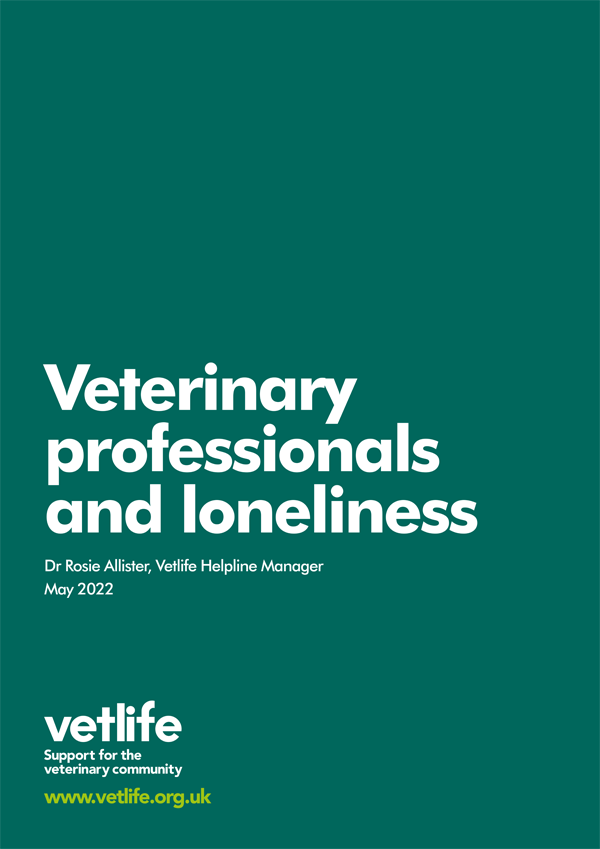Loneliness & isolation
Coping with isolation and loneliness
• Where possible, arrange to have the same evening off each week so you can participate in a weekly evening activity or club.
• If you can, book holidays and time off well in advance to see family and friends. It will give you something to look forward to and ensure they are around when you want to see them.
• Many vet professionals feel they are a burden or shouldn’t ask for help, but it’s vitally important that we do. The relationship we have with ourselves can affect our relationships with other people. Finding space for self-compassion and being kind to yourself isn’t selfish.
• Listen: active listening involves having the right attitude, giving attention, and being open minded and ready to adjust in response to what we hear. Human connection can be incredibly powerful.
• For people who are already lonely it can be hard to make new connections and reach out to others. Those of us who feel well supported and have connections can help by making contact, looking out for people who are isolated, and showing that we care. Stay in touch with old friends and colleagues, and do what you can to help new colleagues settle in.
To help inform the veterinary community about the topic of loneliness and how it can be approached, Vetlife has produced a free in-depth downloadable resource.
Impact on wellbeing
Enjoying your own company and taking time to recharge your batteries contributes to good mental health. However, if it’s not your choice to be alone, not having anyone to talk to or do things with can engender profound feelings of loneliness which can effect health and wellbeing – particularly at times of crisis. Some people may turn to alcohol, overspending or other behaviours in order to deal with those feelings.
Impact on work
Evaluation by peers is vital if someone is not good at seeing themselves through the eyes of others and the opportunity to evaluate work in comparison to peers gives work meaning.
New graduates
After the initial excitement of starting their working life, new graduates can become disillusioned and lonely when the reality of their first job does not meet expectations.
• Changing jobs may be the only solution where there is ongoing conflict in the workplace or a lack of support. If you decide to try to stay and resolve the problem, put a time limit on how long you work to resolve the problems
• You could ask to meet with colleague or employers to tell them what the issues are, how they are affecting you and what you feel needs to happen. See Managing Conflict
• If you get an initial negative response, consider speaking to someone else at work and ask for their advice. Alternatively, if despite your best efforts to resolve your difficulties at work, there is no positive change, then it may be time to look for another job, but seek extra support to maintain your sense of self and keep in touch with other veterinary colleagues to protect against a feeling of alienation until you are able to move on
• Vetlife Helpline is available 24 hours a day if you need someone to talk to
• Vetlife Health Support can provide free professional support for depression and other mental health issues




